
Fascism is a far-right, authoritarian, ultranationalist political ideology and movement, characterized by a dictatorial leader, centralized autocracy, militarism, forcible suppression of opposition, belief in a natural social hierarchy, subordination of individual interests for the perceived good of the nation and/or race, and strong regimentation of society and the economy.
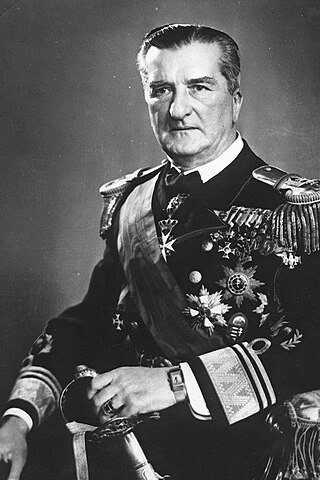
Miklós Horthy de Nagybánya was a Hungarian admiral and statesman who served as the regent of the Kingdom of Hungary during the interwar period and most of World War II, from 1 March 1920 to 15 October 1944.
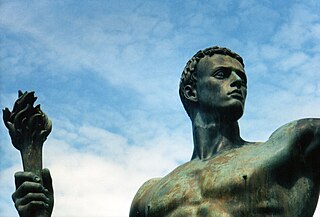
Aryanism is an ideology of racial supremacy which views the supposed Aryan race as a distinct and superior racial group which is entitled to rule the rest of humanity. Initially promoted by racist theorists such as Arthur de Gobineau and Houston Stewart Chamberlain, Aryanism reached its peak of influence in Nazi Germany. In the 1930s and 40s, the regime applied the ideology with full force, sparking World War II with the 1939 invasion of Poland in pursuit of Lebensraum, or living space, for the Aryan people. The racial policies which were implemented by the Nazis during the 1930s came to a head during their conquest of Europe and the Soviet Union, culminating in the industrial mass murder of six million Jews and eleven million other victims in what is now known as the Holocaust.

Gyula Gömbös de Jákfa was a Hungarian military officer and politician who served as Prime Minister of Hungary from 1 October 1932 to his death.

The Arrow Cross Party was a far-right Hungarian ultranationalist party led by Ferenc Szálasi, which formed a government in Hungary they named the Government of National Unity. They were in power from 15 October 1944 to 28 March 1945. During its short rule, ten to fifteen thousand civilians were murdered outright, including many Jews and Romani, and 80,000 people were deported from Hungary to concentration camps in Austria. After the war, Szálasi and other Arrow Cross leaders were tried as war criminals by Hungarian courts.

Ernst Toller was a German author, playwright, left-wing politician and revolutionary, known for his Expressionist plays. He served in 1919 for six days as President of the short-lived Bavarian Soviet Republic, after which he became the head of its army. He was imprisoned for five years for his part in the armed resistance by the Bavarian Soviet Republic to the central government in Berlin. While in prison Toller wrote several plays that gained him international renown. They were performed in London and New York City as well as in Berlin.

Béla Miklós de Dálnok, Vitéz of Dálnok was a Hungarian military officer and politician who served as acting Prime Minister of Hungary, at first in opposition, and then officially, from 1944 to 1945. He was the last Prime Minister of war-time Hungary.

Miklós Radnóti was a Hungarian poet, an outstanding representative of modern Hungarian lyric poetry as well as a certified secondary school teacher of Hungarian and French. He is characterised by his striving for pure genre and his revival of traditional, tried and tested genres.
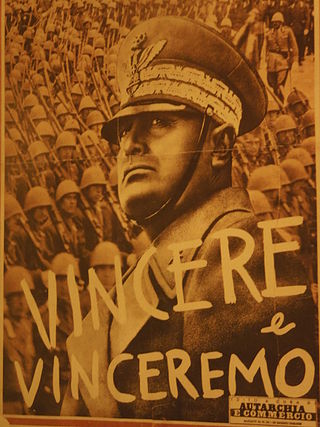
The history of fascist ideology is long and it draws on many sources. Fascists took inspiration from sources as ancient as the Spartans for their focus on racial purity and their emphasis on rule by an elite minority. Fascism has also been connected to the ideals of Plato, though there are key differences between the two. Fascism styled itself as the ideological successor to Rome, particularly the Roman Empire. From the same era, Georg Wilhelm Friedrich Hegel's view on the absolute authority of the state also strongly influenced fascist thinking. The French Revolution was a major influence insofar as the Nazis saw themselves as fighting back against many of the ideas which it brought to prominence, especially liberalism, liberal democracy and racial equality, whereas on the other hand, fascism drew heavily on the revolutionary ideal of nationalism. The prejudice of a "high and noble" Aryan culture as opposed to a "parasitic" Semitic culture was core to Nazi racial views, while other early forms of fascism concerned themselves with non-racialized conceptions of the nation.
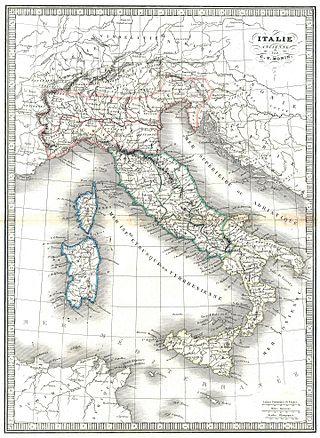
Italian fascism, also classical fascism and Fascism, is the original fascist ideology, which Giovanni Gentile and Benito Mussolini developed in Italy. The ideology of Italian Fascism is associated with a series of political parties led by Mussolini: the National Fascist Party (PNF), which governed the Kingdom of Italy from 1922 until 1943, and the Republican Fascist Party (PFR), which governed the Italian Social Republic from 1943 to 1945. Italian fascism also is associated with the post–war Italian Social Movement (MSI) and later Italian neo-fascist political organisations.
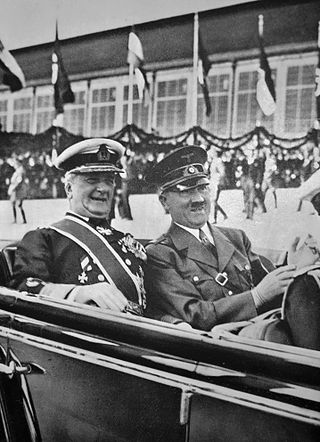
During World War II, the Kingdom of Hungary was a member of the Axis powers. In the 1930s, the Kingdom of Hungary relied on increased trade with Fascist Italy and Nazi Germany to pull itself out of the Great Depression. Hungarian politics and foreign policy had become more stridently nationalistic by 1938, and Hungary adopted an irredentist policy similar to Germany's, attempting to incorporate ethnic Hungarian areas in neighboring countries into Hungary. Hungary benefited territorially from its relationship with the Axis. Settlements were negotiated regarding territorial disputes with the Czechoslovak Republic, the Slovak Republic, and the Kingdom of Romania. On November 20, 1940, Hungary became the fourth member to join the Axis powers when it signed the Tripartite Pact. The following year, Hungarian forces participated in the invasion of Yugoslavia and the invasion of the Soviet Union. Their participation was noted by German observers for its particular cruelty, with occupied peoples subjected to arbitrary violence. Hungarian volunteers were sometimes referred to as engaging in "murder tourism."
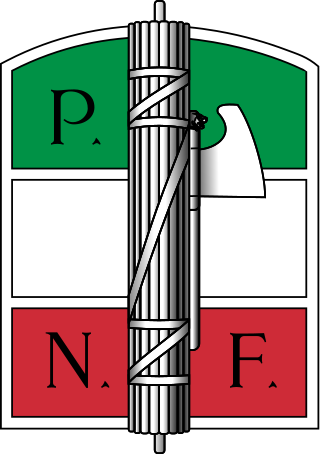
The National Fascist Party was a political party in Italy, created by Benito Mussolini as the political expression of Italian fascism and as a reorganisation of the previous Italian Fasces of Combat. The party ruled the Kingdom of Italy from 1922 when Fascists took power with the March on Rome until the fall of the Fascist regime in 1943, when Mussolini was deposed by the Grand Council of Fascism. It was succeeded, in the territories under the control of the Italian Social Republic, by the Republican Fascist Party, ultimately dissolved at the end of World War II.
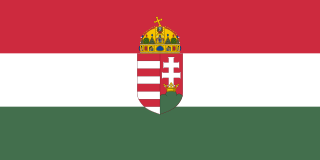
The Kingdom of Hungary, referred to retrospectively as the Regency and the Horthy era, existed as a country from 1920 to 1946 under the rule of Miklós Horthy, Regent of Hungary, who officially represented the Hungarian monarchy. In reality there was no king, and attempts by King Charles IV to return to the throne shortly before his death were prevented by Horthy. Hungary under Horthy was characterized by its conservative, nationalist, and fiercely anti-communist character. The government was based on an unstable alliance of conservatives and right-wingers. Foreign policy was characterized by revisionism — the total or partial revision of the Treaty of Trianon, which had seen Hungary lose over 70% of its historic territory along with over three million Hungarians, who mostly lived in the border territories outside the new borders of the kingdom, in the Kingdom of Romania and the newly created states of Czechoslovakia and the Kingdom of Serbs, Croats and Slovenes. Republican Austria, the successor of the former other half of the dual monarchy also received some minor territory from Hungary. Thus the post-1918 Kingdom can be described as a rump state. Hungary's interwar politics were dominated by a focus on the territorial losses suffered from this treaty, with the resentment continuing until the present.

The Hungarian National Defence Association was an early far-right movement active in Hungary. The structure of the group was largely paramilitary and as such separate from its leader's later political initiatives.
Nazism, the common name in English for National Socialism, is the far-right totalitarian socio-political ideology and practices associated with Adolf Hitler and the Nazi Party (NSDAP) in Germany. During Hitler's rise to power in 1930s Europe, it was frequently referred to as Hitlerism. The later related term "neo-Nazism" is applied to other far-right groups with similar ideas which formed after the Second World War when the Nazi regime collapsed.

Italian nationalism is a movement which believes that the Italians are a nation with a single homogeneous identity, and therefrom seeks to promote the cultural unity of Italy as a country. From an Italian nationalist perspective, Italianness is defined as claiming cultural and ethnic descent from the Latins, an Italic tribe which originally dwelt in Latium and came to dominate the Italian peninsula and much of Europe. Because of that, Italian nationalism has also historically adhered to imperialist theories. The romantic version of such views is known as Italian patriotism, while their integral version is known as Italian fascism.

The Unity Party, officially the Catholic-Protestant Farmers, Smallholders, and Civic Party or Christian Farmers, Smallholders and Civic Party, was the ruling party of Kingdom of Hungary from 1922 to 1944.
Socialist patriotism is a form of patriotism promoted by Marxist–Leninist movements. Socialist patriotism promotes people living within Marxist–Leninist countries to adopt a "boundless love for the socialist homeland, a commitment to the revolutionary transformation of society [and] the cause of communism". Marxist–Leninists claim that socialist patriotism is not connected with nationalism, as Marxists and Marxist–Leninists denounce nationalism as a bourgeois ideology developed under capitalism that sets workers against each other. Socialist patriotism is commonly advocated directly alongside proletarian internationalism, with communist parties regarding the two concepts as compatible with each other. The concept has been attributed by Soviet writers to Karl Marx and Vladimir Lenin.
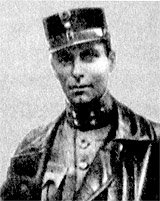
Iván Héjjas was a Hungarian anti-communist soldier and paramilitary commander in the years following the First World War. He played eminent role in the anti-communist and anti-Semitic purges and massacres during the White Terror in the period between 1919 and 1921. As a member of various far-right groups and parties, he was a member of parliament from 1927 to 1931.


















